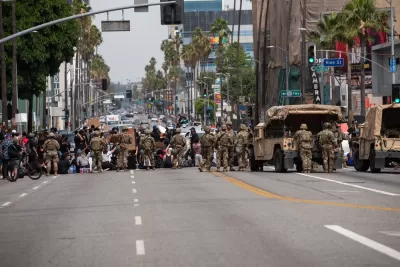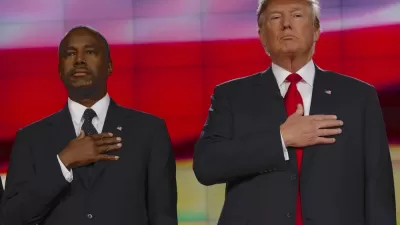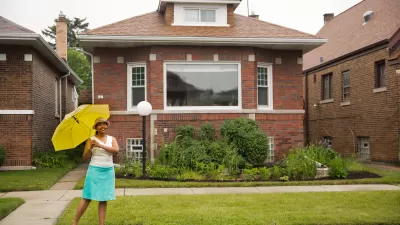Racial disparities in police killings increase with segregation. Does this mean segregation causes racialized police violence?

Everyone should be safe and secure in their homes, their neighborhoods, and going about their lives, no matter who they are, what they look like, or where they have chosen to live. This is a pretty basic statement, and yet it’s one that is clear this country has not lived up to—especially for Black Americans.
People in the housing field who have long fought for fair lending, fair housing, and integration are well aware that the promise of the civil rights movement, in terms of free choice to live wherever one chooses in peace, has not been realized. Many have pointed out, as Gail Schechter of HOME recently did, that open housing was the primary focus of the civil rights movement in the North, and it faced virulent opposition. Despite legal changes prohibiting explicit racial discrimination in housing, it continues through unspoken biases and through rules and systems that compound and perpetuate the disadvantages Black families were left with as a result of legally allowed discrimination.
There is an understandable desire to connect this knowledge to the fight against police violence. And I think they are connected. But we need to be careful about how we understand that connection if we really want to dismantle it.
Police Do Our Dirty Work
In a New York Times op-ed in early July, Betsy Hodges, the mayor of Minneapolis from 2014 to 2018, called out white liberals for blocking systemic changes that would have advanced racial equity. Hodges said it was extremely hard to generate support from white liberals for changes in school funding that would advance equity or in zoning that would advance fair housing, even while they profess support for racial equity and support smaller measures that don’t make them feel uncomfortable. Racial segregation within the city has actually been increasing since 2000. It’s a powerful and important point, and the op-ed is worth a read.
But along the way Hodges describes the police as aware that they were being asked to handle the results of our unequal system. “White liberals like me ask the police to do our dirty work,” she wrote, “dealing with the racial and economic inequities our policies create.”
She’s not wrong. That is part of what’s happening.
....
FULL STORY: Policing, Segregation, and Causation vs. Correlation

Maui's Vacation Rental Debate Turns Ugly
Verbal attacks, misinformation campaigns and fistfights plague a high-stakes debate to convert thousands of vacation rentals into long-term housing.

Planetizen Federal Action Tracker
A weekly monitor of how Trump’s orders and actions are impacting planners and planning in America.

In Urban Planning, AI Prompting Could be the New Design Thinking
Creativity has long been key to great urban design. What if we see AI as our new creative partner?

King County Supportive Housing Program Offers Hope for Unhoused Residents
The county is taking a ‘Housing First’ approach that prioritizes getting people into housing, then offering wraparound supportive services.

Researchers Use AI to Get Clearer Picture of US Housing
Analysts are using artificial intelligence to supercharge their research by allowing them to comb through data faster. Though these AI tools can be error prone, they save time and housing researchers are optimistic about the future.

Making Shared Micromobility More Inclusive
Cities and shared mobility system operators can do more to include people with disabilities in planning and operations, per a new report.
Urban Design for Planners 1: Software Tools
This six-course series explores essential urban design concepts using open source software and equips planners with the tools they need to participate fully in the urban design process.
Planning for Universal Design
Learn the tools for implementing Universal Design in planning regulations.
planning NEXT
Appalachian Highlands Housing Partners
Mpact (founded as Rail~Volution)
City of Camden Redevelopment Agency
City of Astoria
City of Portland
City of Laramie





























